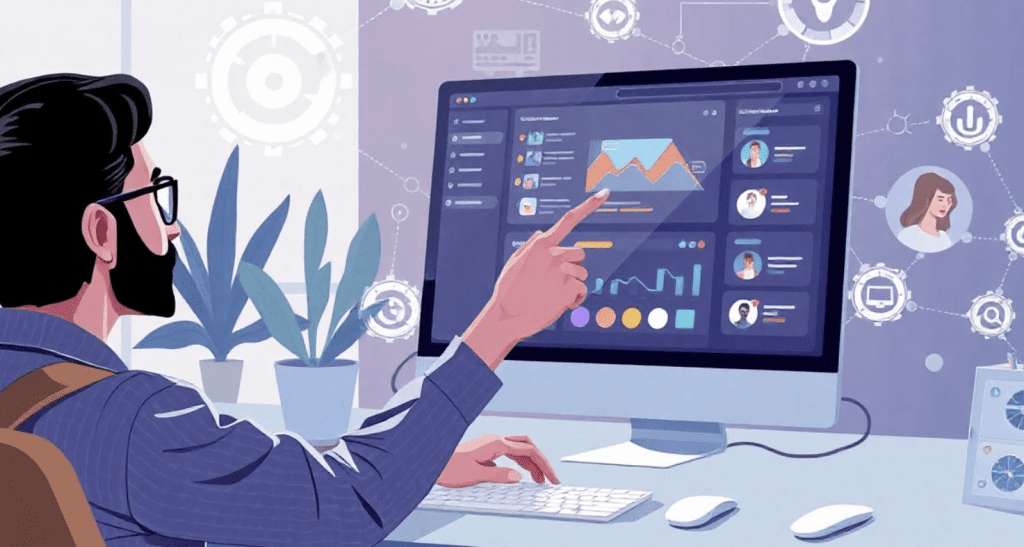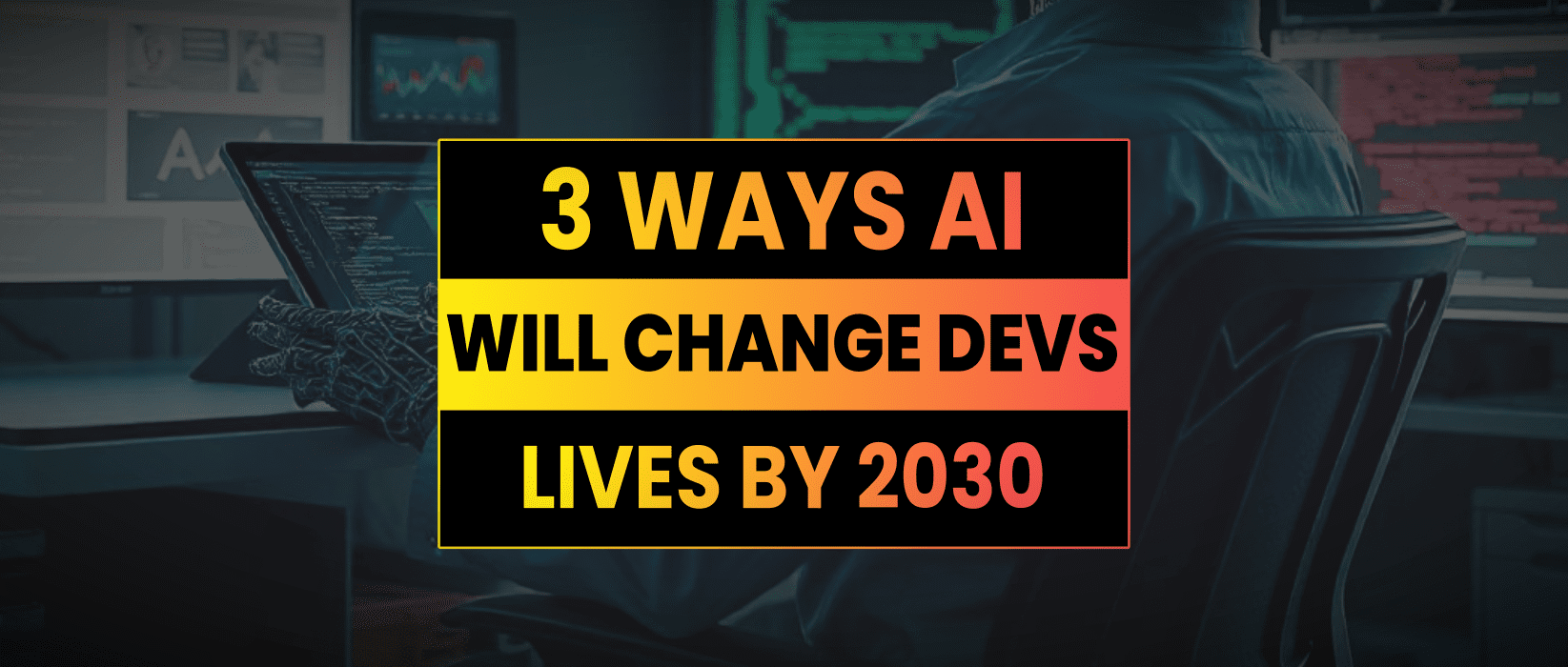As a developer who wrote his first computer program on a Commodore64, I’ve seen my fair share of technological shifts. But nothing quite compares to the seismic changes I anticipate large language models will bring to software development in the coming years.
Let me take you on a journey through my vision of the future, where AI doesn’t just assist us – it fundamentally transforms how we work as developers.
Everyone Is A Senior Developer
Remember the days when we’d onboard junior developers, patiently guiding them through coding conventions, best practices, and the intricacies of our tech stack? Well, those days are becoming a distant memory. LLM’s are rapidly evolving to fill the role traditionally occupied by junior developers, and it’s changing the game entirely.
When using ChatGPT as coding assistant for building web apps I find myself spending less time on the details of implementation. Instead, I’m taking on a higher level role, almost like an architect or a product manager. I describe the features I want, the problems I need to solve, the AI assistant churns out code that’s not just functional, but often elegant and optimized in about 30 seconds.
Creative coding is a challenge, skill and pleasure when you get it right. My fear is that the next generation of developers will be self-trained project managers who lack the appreciation of elegant beautiful code.
On a positive note the shift means that developers with less experience can contribute at a higher level. The AI fills in the gaps in their knowledge, suggesting best practices and offering alternatives they might not have considered.
For senior devs it’s like having the worlds fastest and most accomplished junior developer at your side. For junior devs it’s more like having a senior developer looking over your shoulder, always ready with advice and solutions.
Our value now lies in our ability to envision solutions, to understand the broader implications of our choices, and to guide the AI code generation tools towards creating systems that are not just functional regurgitations, but elegant innovations.

Capability Of No Code Platforms
No code platforms in their current form are unable to handle anything beyond the most basic websites or apps. AI can push these platforms to a tipping point where they’re becoming genuinely useful tools.
It’s only a matter of time before a non-technical founder builds a billion dollar company out of functional prototypes, dashboards, and even complex websites without writing a single line of code.
AI is getting increasingly better at understanding natural language instructions and translating them into working features. It’s like having a virtual dev team at your fingertips, ready to bring your vision to life, with the added benefit of not having to interact with nerds.
This shift is both exciting and a little unsettling for someone like me who’s built a career on coding skills. But I’ve come to see it as an opportunity rather than a threat. These platforms are democratizing software creation, allowing more people to bring their ideas to life. And that means more interesting projects, more innovation, and ultimately, more work for those of us who can take these initial prototypes and scale them into robust, production grade applications.

A New Era For Debugging & Testing
The niche that I work in, blockchain development, is famous for requiring lots of testing. If you had told me a few years ago that I could spend less time on unit tests and integration testing than on creative coding, I wouldn’t have believed the possibility.
While we still aren’t at a point where AI can effectively test and debug code for niche experimental code, it is going in that direction. By 2030 I’d expect to see platforms built for every programming language to automate testing, security checks, auditing, optimization, documentation generation and all the other tasks that developers love to hate.
This shift will free up time for developers to be more productive and I think this is where I see the greatest advance from AI. Development times are going to come down exponentially. If a internal enterprise dashboard took 3 months to code in 2020 for a team of 10 engineers, that same dashboard will be a few days work for a single dev by 2030.
The process I believe we will edge towards will be something along the lines of:-
- Understand the problem and get a high level overview of what is needed
- Work with AI to describe the problem in detail and draw up a technical spec
- Developer will work through the spec with AI writing the majority of the code
- Developer will bring it all together into a MVP and run it up on a local testnet
- Developer then creates a snagging list of improvements and requirements to get to the finished product
- Perhaps a refactor of the code is required which AI will handle
- AI is then used to test, optimize and polish the code before it’s delivered to the client
This is a very different dynamic to the current role of software developers in todays industry. The world is changing and it’s worth thinking about how we, as developers, will fit in to this new reality.


